
Please, support PV!
It allows to keep PV going, with more focus towards AI, but keeping be one of the few truly independent places.
It allows to keep PV going, with more focus towards AI, but keeping be one of the few truly independent places.
GH2 AVCHD transcoded with 5DtoRGB vs AVCHD 8 bit 4:2:0 (Chroma sampling+smoothing)
-
I came across a real world example of 5dtoRGB's power while setting up some scenes and stuff for some upcoming Color Finesse 3 tutorials I've been asked to do . I previously stated here: http://www.personal-view.com/talks/discussion/530/5dtorgb-for-gh2-advantages-vs-disadvantages#Item_29 that with my adobe workflow and Color Finesse 3, I have had no need or advantages using 5dtorgb. I was wrong. To be honest, I really wasn't expecting any improvement, but 5DtoRGB did a spectacular job at upsampling 4:2:0 and it's chroma smoothing was excellent.
The scene's background was lit with a blue tint and the skintones in the foreground were lit warmly so as to create a complementary color contrast. Now when I brought the footage into AE, I noticed these very harsh edges around the skintones with false color etc. at first I thought it was digital sharpening but at close inspection, I realised it was the 4:2:0 limitation. It looked awful and I could not perform any sharpening as it got a lot worse. Then I thought I'd try 5dtoRGB and it proved it's worth.
NOTE 1: this improvement that 5dtoRGB brings will be augmented with further micro-contrast enhancements like sharpening etc. Try sharpening the avchd file=ugly mess. try sharpening transcoded file= normal.
NOTE 2: Ofcourse, there are space+time disadvantages.
NOTE 3: this scenario with the blue lit background is quite extreme as it's the perfect receipe
for chroma down-sampled footafe disaster, so it doesn't mean I will be transcoding all of my footage ofcourse.
settings and tech stuff: lit with 2 312 LED lights (1 312 Bi-color at 3200K with diffusion in fridge:) and 1 312 5600K with blue gel), nostalgic -2,0,-2,0. ISO 200, nikkor 50mm 1.2 Ai-s @F2.8, drifwood's 100Mb 3 GOP settings, transcend 16gb class 10, graded in Color Finesse 3, transcoded in uncompressed 10 bit 4:2:2 (overkill, 8bit and DNxHD should work fine)
so here goes:
pic 1: 1st detail transcoded (look at improvements) - compare with pic 3
pic 2:2nd detail -transcoded-day and night difference! -compare with pic 4
pic 3:1st detail untranscoded (look at false color and chroma down-sampling artifacts)
pic 4: 2nd detail example- untranscoded ( look at awful false artifacts on skin edge!!!!)
pic 5: untranscoded graded. compare with pic 7
pic 6: transcoded ungraded for reference.
pic 7 :transcoded graded (there is small difference in CC between pic 5+7 cause I changed a few things-this does not affect the edges though)
pixel peepers enjoy!!!
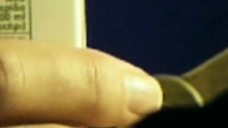
 detail1transcoded.png1920 x 1080 - 809K
detail1transcoded.png1920 x 1080 - 809K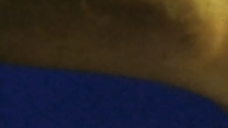
 detail2transcoded.png1920 x 1080 - 545K
detail2transcoded.png1920 x 1080 - 545K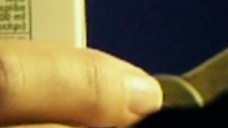
 detail1untranscoded.png1920 x 1080 - 833K
detail1untranscoded.png1920 x 1080 - 833K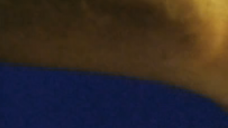
 detail2untranscoded.png1920 x 1080 - 562K
detail2untranscoded.png1920 x 1080 - 562K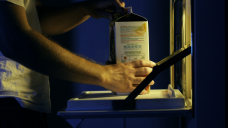
 graded.png1920 x 1080 - 2M
graded.png1920 x 1080 - 2M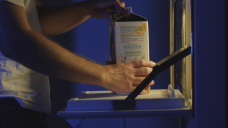
 ungraded.png1920 x 1080 - 2M
ungraded.png1920 x 1080 - 2M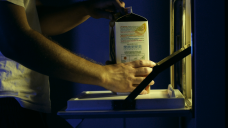
 graded5dtoRGB.png1920 x 1080 - 2M
graded5dtoRGB.png1920 x 1080 - 2M -
8bit DNxHD... 36? 115? 175?
-
@stonebat mmm, not entirely sure, this specific chroma sampling issue has to do with 4:2:0, so with regards to amending this specific issue, 10 bit and super high bitrates shouldn't play a role, good 4:2:2 conversion should, but low bitrates might introduce other compression issues. But I'm guessing 115 should be sufficient for not super processed footage.
-
115 sounds good. It produces 1.2min/GB bandwidth which seems pretty close what 100Mbps setting produces.
-
I don't know about other people, but if you open pic 2+4 and switch between them , I see a world of a difference. Pic 4 is just so wrong and ugly in comparison. I think the biggest benefits from transcoding with 5dtorgb will be in post processing: chroma keying, sharpening and boosting contrast curves etc.
-
It sounds great. But it's gonna slow down the workflow. I must try it by myself to see if it's worth.
If everyone uses same gears and same settings, what would differentiate among final artifacts? Lighting and post-processing :) -
I just learned ProRes and DNxHD are Intra-frames only codecs.
ProRes422 has 147Mbps bandwidth. Divided by 24. Each intra frame would be about 6Mb for I-frame bigger than 6Mb from GH2VK. If I-frame is 10Mbps, each frame (I or B or P) gets compressed to 6Mb Intra frame? Or lossy transcoding?
ProRes422HQ has 9Mb intra frame. ProRes444 13Mb intra frame.
Suddenly... 5~7Mb I-frame size looks big enough for practical purpose. I'd stick to 44Mbps GOP12 AQ4 and transcode to ProRes422 or DNxHD175. -
tell us your settings in 5dtorbg (output format, decoding matrix, gamma, chroma mode)
-
@Mezomorf
if it helps:
output format: uncompressed 10 bit 4:2:2 (v210) 23.976 (10 bit uncompressed is probably overkill)
decoding matrix: .709
gamma flagging: 1.8 (2.2 will be closer to original file but when color correcting I prefer 1.8 as a starting point)
-
@stefanos Which version of AE are you using? According to this thread the chroma upsampling was significantly improved in CS5.5
-
@sam_sickland
I use cs5 at the moment. Do you mean that transcoding through after effects into the upsampled codec of your choice has been improved(in CS5.5)? or A.K.A high quality RGB conversion, similar to 5dtorgb? If that is true then the benefits would be in time, and those could be pretty big with AE 64 bit engine, multi thread tech, mercury engine etc -
I believe they are saying the RGB conversion is higher quality in CS5.5. If you can put your source files and project files somewhere for me to download I can try it for you. The trial version unfortunately can't load AVCHD.
-
I use AJA codec 10-bit and it does faster and better what 5DtoRGB does...
-
@ producer
can you describe your workflow? -
AJA 10-bit YUV 4:2:2 v210 or AJA 10-bit RGB 4:4:4 R10g with compression and decompression YUV HD Matrix = 709CGR. "Allow Super Blacks" and "Allow Super Whites" checked. That's all.
-
The first frame is straight from the camera, the second one is after transcoding with AJA codec. No 5DtoRGB used!

 Image3.jpg1920 x 817 - 315K
Image3.jpg1920 x 817 - 315K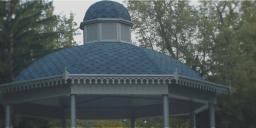
 Image1.jpg1920 x 817 - 305K
Image1.jpg1920 x 817 - 305K -
@producer
what are you trying to prove here? -
@producer
Thats not selling it to me, it looks like in the second image that it's lifted the black point, badly, creating a fog. Or incorrect gamma, or both. Does it do that if you uncheck the super black and super white settings ? Or are the frames the wrong way around on your post ? -
5DtoRGB for Mac doesn't support DNxHD. Only Win version supports DNxHD.
709 & 1.8 gamma options.
1st is original. 2nd is transcoded. Both ungraded.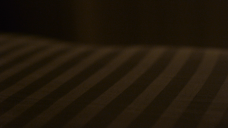
 00013.MTS.Still001.png1920 x 1080 - 1M
00013.MTS.Still001.png1920 x 1080 - 1M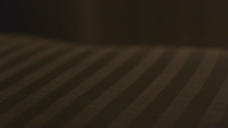
 709-1.8-175.mov.Still001.png1920 x 1080 - 2M
709-1.8-175.mov.Still001.png1920 x 1080 - 2M -
@stonebat
you see that in your test, the transcoded doesn't offer worthwhile benefits, it just happened that my case was extreme because of the blue lit background; the same would apply if the background was green etc. And I think this is how 5dtorgb should be used, on a case by case basis, if you encounter a chroma issue, use it. if you don't, then it's probably not worth transcoding as nowadays, you can edit natively AVCHD.
couple of other pointers to test:
-setting a more contrasty gamma should yield a gamma closer to the original
-try applying heavy sharpening to both files, I'm suspecting that the transcoded might behave better.
Start New Topic


Howdy, Stranger!
It looks like you're new here. If you want to get involved, click one of these buttons!
Categories
- Topics List23,990
- Blog5,725
- General and News1,353
- Hacks and Patches1,153
- ↳ Top Settings33
- ↳ Beginners256
- ↳ Archives402
- ↳ Hacks News and Development56
- Cameras2,367
- ↳ Panasonic995
- ↳ Canon118
- ↳ Sony156
- ↳ Nikon96
- ↳ Pentax and Samsung70
- ↳ Olympus and Fujifilm101
- ↳ Compacts and Camcorders300
- ↳ Smartphones for video97
- ↳ Pro Video Cameras191
- ↳ BlackMagic and other raw cameras116
- Skill1,960
- ↳ Business and distribution66
- ↳ Preparation, scripts and legal38
- ↳ Art149
- ↳ Import, Convert, Exporting291
- ↳ Editors191
- ↳ Effects and stunts115
- ↳ Color grading197
- ↳ Sound and Music280
- ↳ Lighting96
- ↳ Software and storage tips266
- Gear5,420
- ↳ Filters, Adapters, Matte boxes344
- ↳ Lenses1,582
- ↳ Follow focus and gears93
- ↳ Sound499
- ↳ Lighting gear314
- ↳ Camera movement230
- ↳ Gimbals and copters302
- ↳ Rigs and related stuff273
- ↳ Power solutions83
- ↳ Monitors and viewfinders340
- ↳ Tripods and fluid heads139
- ↳ Storage286
- ↳ Computers and studio gear560
- ↳ VR and 3D248
- Showcase1,859
- Marketplace2,834
- Offtopic1,319






